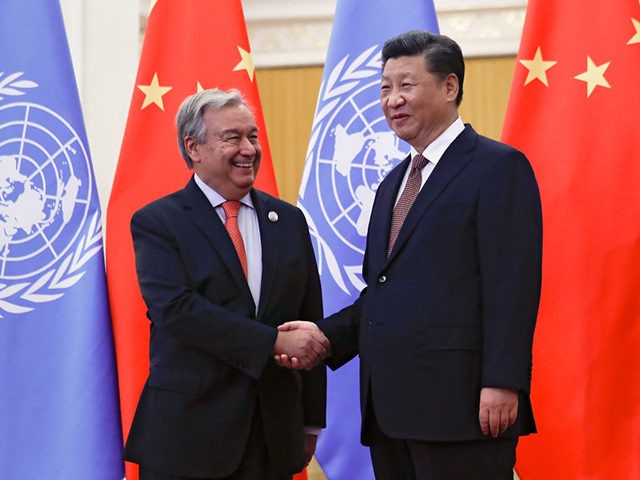The U.N. Security Council (UNSC) released a report Thursday claiming Uyghur terrorists from the East Turkestan Islamic Movement (ETIM) are attempting to carve out an Uyghur state in Afghanistan.
The Chinese government strives to portray ETIM as a massive terrorist organization, a threat on par with al-Qaeda or ISIS, to justify Chinese human rights violations against the Uyghurs of Xinjiang province.
Most other governments, including the United States, believe ETIM was never a major threat, and it effectively ceased to exist a decade ago after Pakistani security forces killed its leader. The State Department delisted ETIM as an active terrorist threat in November 2020, prompting furious Chinese officials to demand the U.S. “immediately correct its mistake and refrain from whitewashing terrorist organizations.”
The name “East Turkestan Islamic Movement” incorporates the name Uyghurs and other Turkic minorities prefer for the region China calls Xinjiang. ETIM, which was small in its prime, was established in the late 1990s with the help of terrorist training camps in Afghanistan. Its alleged goal was to create an Islamic state separate from China.
The UNSC — of which China is a permanent member — claimed ETIM fighters are present in Afghanistan along with al-Qaeda and ISIS, as summarized by the South China Morning Post (SCMP):
The report said ETIM, which is aligned primarily with al-Qaeda, is operating in Afghanistan and Syria. In Afghanistan, the group has hundreds of members, active in the provinces of Badakhshan, close to the border with Xinjiang, as well as Faryab, Kabul and Nuristan.
ETIM’s Afghan faction has sought to establish a Uygur state in China’s western province of Xinjiang and facilitated the movement of fighters across Afghanistan’s border into China, the report said.
ETIM is often conflated with another separatist movement called the Turkestan Islamic Party (TIP) that has a similar agenda. The Chinese government treats them as one and the same, and so did the UNSC report. TIP is considerably larger than ETIM was at its peak and has a wider theater of operations, with up to 3,000 fighters reportedly operating in northwestern Syria.
The UNSC said ETIM and TIP are allied with Hay’at Tahrir al-Sham (HTS), a Syrian terrorist group that supposedly broke away from al-Qaeda in 2017. The three terrorist commands were said to be working on moving some of its fighters from Syria, where few strongholds of resistance to the ruling Assad regime remain, to Afghanistan.
According to the UNSC report, ETIM’s current leaders are based in Afghanistan and the group is circulating recruitment videos that show its members receiving military training in Afghan camps.
The report estimated “several hundred” ETIM members are presently active in Afghanistan, mostly in Badakhshan province near the Chinese border, where they have allegedly assisted Taliban forces.
The Taliban gained control of territory along the border with China’s Xinjiang province in early July, which should have alarmed the Chinese government given the Afghan extremist organization’s friendly relations with Uyghur militants, but the Taliban took pains to reassure Beijing that it would pose no threat to Chinese security.
Taliban criticism of China for abusing the Uyghur Muslims has always been muted. In July, Taliban representatives explicitly promised not to interfere in China’s “internal affairs” or allow territory it controls to be used as a staging ground for terrorism in Xinjiang. Some independent security analysts are highly skeptical of the Taliban’s promises not to let Afghanistan become a “terrorist Disneyland” again, as Rohan Guaranata of Singapore’s Nanyang Technological University put it.
Chinese Foreign Minister Wang Yi asked a visiting Taliban delegation on Wednesday to sever all ties with ETIM and TIP.
“We hope the Afghan Taliban will make a clean break with all terrorist organizations, including the ETIM, and resolutely and effectively combat them to remove obstacles, play a positive role and create enabling conditions for security, stability, development and cooperation in the region,” Wang said.
A State Department spokesperson told Newsweek in June that China is using the name “ETIM” as a “broad label” to “inaccurately paint a variety of Uyghur actors, including non-violent activists and advocates for human rights, as terrorist threats.”
“China often labels individuals and groups as terrorists on the basis of their political and religious beliefs, even if they do not advocate violence.”

COMMENTS
Please let us know if you're having issues with commenting.